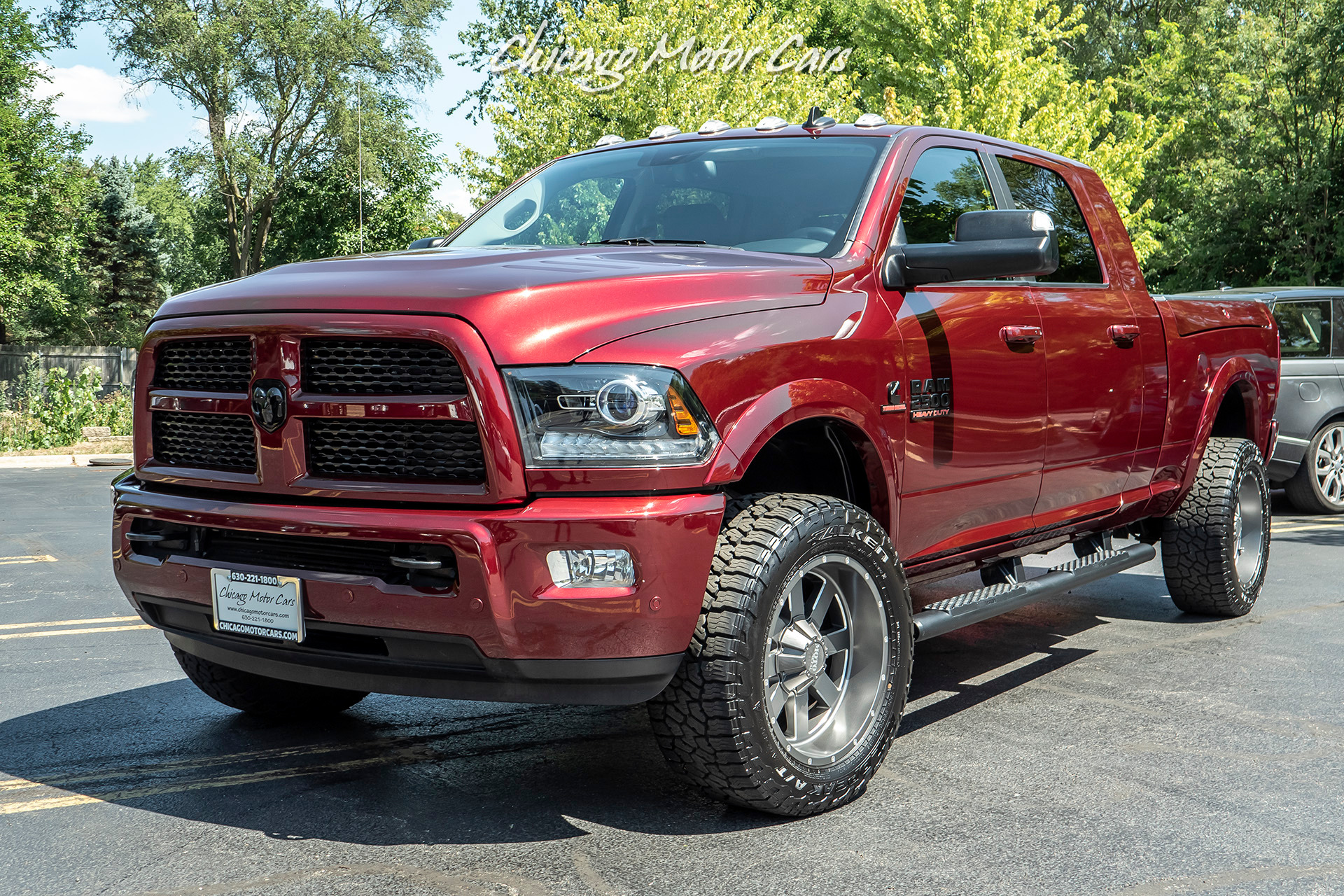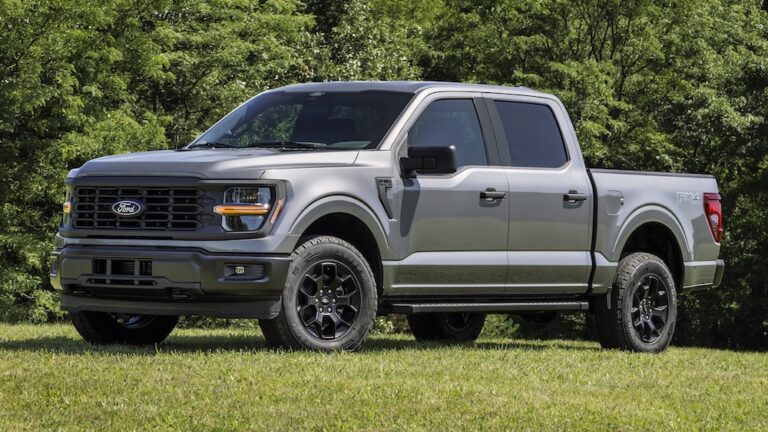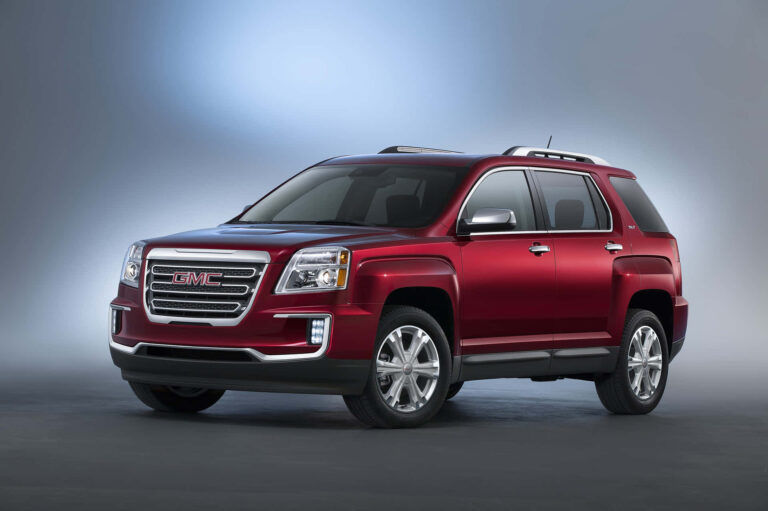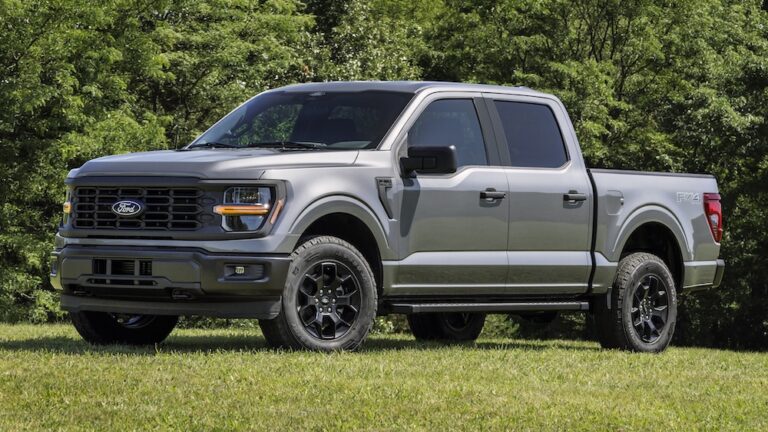2500 Dodge Diesel Trucks For Sale: Your Ultimate Buyer’s Guide
2500 Dodge Diesel Trucks For Sale: Your Ultimate Buyer’s Guide cars.truckstrend.com
The rumble of a Cummins engine, the capability to tow mountains, and the promise of relentless durability – these are the hallmarks of the 2500 Dodge Diesel truck. For decades, these heavy-duty pickups have been the undisputed workhorses of America, earning a legendary reputation for power, longevity, and an unwavering ability to get the toughest jobs done. When you see "2500 Dodge Diesel Trucks For Sale," you’re not just looking at a vehicle; you’re looking at an investment in robust utility, a testament to engineering excellence, and a partner for heavy-duty tasks, whether it’s hauling a fifth-wheel camper across the country, pulling commercial equipment, or navigating challenging terrain. This comprehensive guide will delve into everything you need to know about finding, evaluating, and purchasing your ideal 2500 Dodge Diesel, ensuring you make an informed decision that meets your needs and budget.
A Legacy of Power: The Evolution of the Dodge Ram 2500 Diesel
2500 Dodge Diesel Trucks For Sale: Your Ultimate Buyer’s Guide
The story of the Dodge Ram 2500 Diesel is intrinsically linked with the Cummins B-series engine, a partnership that began in 1989 and revolutionized the heavy-duty truck market. Prior to this, diesel options in light-duty trucks were often underpowered or unreliable. The introduction of the 5.9-liter 12-valve Cummins in the first-generation D/W series trucks (1989-1993) marked a turning point, offering unprecedented torque and reliability for a pickup.
Key Generations and Engine Milestones:
- First Generation (1989-1993): Introduced the iconic 5.9L 12-valve Cummins, known for its mechanical simplicity and robust nature.
- Second Generation (1994-2002): A radical redesign brought modern aesthetics and improved interiors. The 12-valve continued, eventually replaced by the 24-valve 5.9L Cummins in 1998. The 24-valve offered more power but introduced electronics and the infamous VP44 injection pump on some models.
- Third Generation (2003-2009): Another significant redesign. The 5.9L Cummins evolved into the "Common Rail" engine (2003.5 onwards), offering quieter operation, better fuel economy, and higher power. In 2007.5, the 6.7L Cummins was introduced to meet stricter emissions standards, featuring a Diesel Particulate Filter (DPF) and Exhaust Gas Recirculation (EGR).
- Fourth Generation (2010-2018): Further refined styling and interiors, with continued advancements in the 6.7L Cummins, including the introduction of Diesel Exhaust Fluid (DEF) on some models for even cleaner emissions.
- Fifth Generation (2019-Present): The latest iteration brings advanced technology, luxurious interiors, and an even more powerful and refined 6.7L Cummins, pushing torque figures well beyond 1,000 lb-ft.
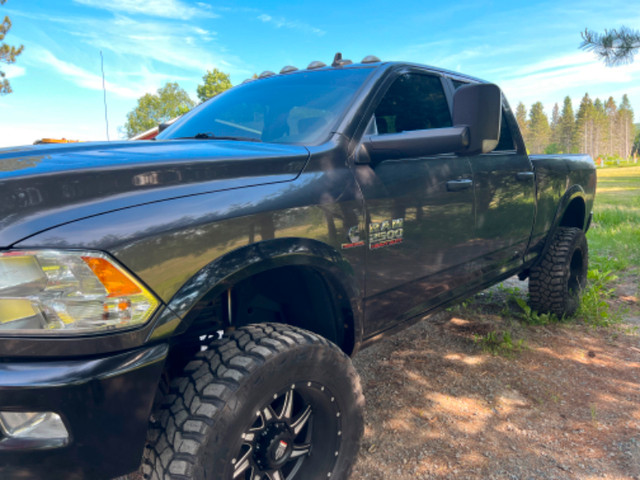
Each generation has its distinct characteristics, advantages, and common considerations, making it crucial to understand the nuances of the specific model year you’re interested in.
Why Choose a 2500 Dodge Diesel? Unmatched Benefits
The allure of the 2500 Dodge Diesel goes beyond its powerful engine. These trucks offer a compelling package of benefits for a wide range of users:
- Exceptional Towing and Hauling Capacity: This is arguably the primary reason people buy these trucks. With their heavy-duty frames, robust suspensions, and the prodigious torque of the Cummins engine, 2500 Diesels can effortlessly tow large RVs, horse trailers, utility trailers, and construction equipment that would overwhelm a half-ton truck.
- Cummins Engine Reliability and Longevity: The Cummins engine is renowned for its durability, often lasting for hundreds of thousands of miles, sometimes even a million, with proper maintenance. Its cast-iron block and relatively simple design (especially the older 12-valve and early 24-valve versions) contribute to its legendary status.
- Fuel Efficiency (for its class): While no heavy-duty truck is a fuel sipper, diesel engines are inherently more fuel-efficient than their gasoline counterparts, especially when under load. This can lead to significant savings on long hauls or frequent towing.
- Strong Resale Value: Due to their reputation for reliability and utility, 2500 Dodge Diesels, particularly those with the Cummins engine, tend to hold their value exceptionally well in the used market.
- Customization and Aftermarket Support: A vast aftermarket exists for Cummins-powered Rams, offering everything from performance upgrades and suspension lifts to aesthetic modifications. This allows owners to tailor their trucks to specific needs or preferences.
- Workhorse Capability: Beyond towing, these trucks are built for hard work. They can handle heavy payloads in their beds, traverse challenging terrain with 4×4 options, and withstand the rigors of daily commercial or agricultural use.


Key Considerations When Buying a Used 2500 Dodge Diesel
Purchasing a used heavy-duty diesel truck requires a thorough approach. Here’s what to meticulously inspect and consider:
1. The Cummins Engine: The Heart of the Beast
- 12-Valve (1989-1998.5): Known for simplicity and extreme durability. Look for "Killer Dowel Pin" (KDP) repair status (an unfixed KDP can cause catastrophic engine failure, but it’s a relatively cheap fix). Listen for any unusual noises.
- 24-Valve (1998.5-2002): More power and refinement, but watch for the VP44 injection pump, which can be a common failure point. Some early 24-valve engines had a "53 Block" casting issue that could lead to cracking; while not universal, it’s something to be aware of.
- Common Rail (2003.5-2007 5.9L & all 6.7L): Quieter, more powerful, and cleaner. Key concerns include injector life, CP3 (on 5.9L) or CP4 (on 6.7L) injection pump health, and the condition of the turbocharger.
- 6.7L Cummins (2007.5-Present): Excellent power, but pay close attention to the emissions system (DPF, EGR, DEF). Clogged DPFs, failed EGR valves, and issues with DEF systems can lead to costly repairs if not properly maintained. Ask about "regeneration" frequency.
- General Engine Health: Check for excessive blow-by (remove oil cap while running and look for smoke/pressure), fluid leaks (oil, coolant, fuel), and proper cold starts. A complete service history is invaluable for any diesel.
2. Transmission: Automatic vs. Manual
- Automatic Transmissions:
- 47RH/RE (Second Gen): Can be prone to failure, especially when modified or towing heavy loads without upgrades.
- 48RE (Third Gen 5.9L): Stronger than the 47RE but still benefits from aftermarket upgrades for heavy use.
- 68RFE (Third Gen 6.7L & Fourth Gen): A 6-speed automatic, generally more robust but still has known issues, especially with torque converter lock-up.
- Aisin AS69RC (Fourth Gen HO 6.7L & Fifth Gen): The heavy-duty option, highly regarded for its strength and reliability, especially in high-output models.
- Fluid condition: Check for burnt smell or dark color.
- Manual Transmissions:
- NV4500 (First & Second Gen): Robust 5-speed, but watch for "fifth gear nut" issues.
- NV5600 (Second & Third Gen): Strong 6-speed, highly desirable, but parts can be expensive if repairs are needed.
- G56 (Third Gen 6.7L & Fourth Gen): Aluminum case 6-speed, generally reliable but not as robust as the NV5600 for extreme loads.
- Clutch condition: Check for slippage or difficulty shifting.
3. Drivetrain and Suspension
- Front End Components: Dodge Rams, particularly 2nd and 3rd Gen, are notorious for wearing out front-end parts (ball joints, tie rods, steering box, track bar). Look for excessive play in the steering.
- 4×4 System: Test the 4-wheel drive engagement (high and low range). Listen for unusual noises from the transfer case.
- U-Joints/Driveshafts: Check for play.
- Leaf Springs/Shocks: Look for sagging or signs of worn-out suspension components.
4. Body and Frame
- Rust: Common areas include rocker panels, cab corners, wheel wells, and the frame itself. Check under the truck thoroughly, especially in areas where road salt is used.
- Accident History: Look for inconsistent panel gaps, mismatched paint, or signs of frame repair. A VIN check (CarFax, AutoCheck) is essential.
- Interior Condition: Check for excessive wear on seats, dashboard cracks, and functionality of all electronics.
5. Maintenance Records and Mileage
- Records are paramount: A well-documented service history is gold for a diesel. It shows consistent oil changes, fuel filter replacements, and any major repairs.
- Mileage: Don’t be immediately deterred by high mileage on a Cummins. A 300,000-mile engine that’s been meticulously maintained is often a better buy than a 150,000-mile engine that’s been neglected.
6. Modifications
- Be cautious: While some modifications are beneficial (e.g., improved filtration, better turbo), poorly installed or aggressive "tunes" can significantly reduce engine life. Ask what modifications have been done and why.
- Emissions Deletes: On 6.7L Cummins trucks, some owners delete the DPF/EGR system for performance or reliability. Be aware this is illegal in many regions and can cause issues during inspections or resale.
7. Pre-Purchase Inspection (PPI)
- Absolutely essential: Even if you’re mechanically inclined, have a trusted, independent mechanic specializing in diesel trucks perform a comprehensive inspection. This small investment can save you thousands in unexpected repairs.
Where to Find 2500 Dodge Diesel Trucks For Sale
- Online Marketplaces: AutoTrader, Cars.com, eBay Motors, Craigslist, Facebook Marketplace are excellent starting points. Use specific filters for "Dodge Ram 2500," "Diesel," and "Cummins."
- Used Car Dealerships: Many dealerships, especially those in rural or truck-centric areas, will have a selection of used diesel trucks.
- Specialized Diesel Truck Dealers: Some dealerships focus specifically on diesel trucks, offering a curated inventory and potentially more knowledgeable staff.
- Private Sellers: Often found through online ads, private sales can sometimes yield better deals, but they require more due diligence on the buyer’s part.
- Auctions: Government surplus, repossessions, or public auctions can offer lower prices, but vehicles are sold "as-is," making a PPI even more critical.
Tips for a Successful Purchase
- Define Your Needs and Budget: How will you use the truck? What’s your absolute maximum budget for the truck itself, plus potential immediate repairs, insurance, and taxes?
- Research Specific Years/Generations: Narrow down your search to the generations that best fit your power, feature, and reliability preferences.
- Be Patient: The right truck at the right price might not appear overnight.
- Test Drive Thoroughly: Listen for odd noises, feel for vibrations, check steering play, test all lights and electronics, and ensure the transmission shifts smoothly.
- Negotiate: Don’t be afraid to haggle. Use any identified issues from your inspection as leverage.
- Verify VIN: Use CarFax or AutoCheck to review the vehicle’s history, including accidents, service records, and title issues.
- Factor in Operating Costs: Diesel fuel is often more expensive, and maintenance can be specialized. Insurance and registration for heavy-duty trucks can also be higher.
Potential Challenges and Solutions
- Higher Purchase Price: Diesel trucks generally command a premium over gasoline versions due to their capability and durability.
- Solution: Save up, consider older generations, or look for higher-mileage examples with good maintenance records.
- Cost of Parts and Maintenance: Diesel-specific components can be more expensive, and specialized mechanics might charge higher labor rates.
- Solution: Budget for these costs. Learn basic DIY maintenance (oil, fuel filters). Find a reputable diesel mechanic before you need one.
- Emissions Equipment Issues (6.7L Cummins): DPF, EGR, and DEF systems can be problematic and costly to repair if not properly maintained.
- Solution: Ensure the truck has a history of proper maintenance. Be aware of the signs of emissions system issues (reduced power, frequent regenerations).
- Finding a Well-Maintained Example: Many diesel trucks are bought for work and may not have been pampered.
- Solution: Be persistent, use the pre-purchase inspection, and don’t settle for the first truck you see.
Estimated Price Table for 2500 Dodge Diesel Trucks For Sale (Varies Widely by Condition, Mileage, Location, and Trim)
| Generation/Year Range | Engine Type | Estimated Price Range (USD) | Key Features/Notes |
|---|---|---|---|
| 1st Gen (1989-1993) | 5.9L 12-Valve Cummins | $8,000 – $25,000+ | Mechanical simplicity, highly sought-after, KDP fix is important. Pristine examples fetch a premium. |
| 2nd Gen (1994-2002) | 5.9L 12-Valve/24-Valve Cummins | $10,000 – $30,000+ | Iconic styling. 12-valve more reliable; 24-valve can have VP44 issues. Rust is common. |
| 3rd Gen (2003-2009) | 5.9L/6.7L Common Rail Cummins | $12,000 – $35,000+ | Modernized, more powerful. 5.9L (pre-07.5) generally preferred for simplicity. 6.7L introduces emissions. |
| 4th Gen (2010-2018) | 6.7L Common Rail Cummins | $20,000 – $55,000+ | Improved interiors, more refined ride. Emissions systems (DPF/DEF) require attention. HO Aisin models are premium. |
| 5th Gen (2019-Present) | 6.7L Common Rail Cummins | $40,000 – $80,000+ | Latest tech, luxurious interiors, highest towing capacity. Still depreciating, good for CPO. |
Note: These prices are highly speculative and depend heavily on the truck’s specific condition, mileage, trim level (e.g., Laramie, Longhorn, Tradesman), 2WD/4WD, transmission, and regional market demand. Heavily modified or exceptionally low-mileage examples can exceed these ranges.
Frequently Asked Questions (FAQ) about 2500 Dodge Diesel Trucks For Sale
Q: What’s the best year for a Cummins-powered Ram 2500?
A: "Best" is subjective. Many enthusiasts prefer the 1994-1998 12-valve 5.9L Cummins for its mechanical simplicity and legendary reliability. For more power and modern features without DEF, the 2003.5-2007 5.9L Common Rail is highly regarded. Newer 6.7L models offer immense power and comfort but come with more complex emissions systems.
Q: Are high-mileage Cummins engines reliable?
A: Yes, very reliable if properly maintained. It’s not uncommon to see Cummins engines with 300,000 to 500,000 miles or more still running strong. Maintenance history is far more important than mileage alone for a diesel.
Q: What’s the difference between 12-valve and 24-valve Cummins?
A: The 12-valve (1989-1998.5) has two valves per cylinder and a mechanical injection pump (P7100), known for its simplicity and robustness. The 24-valve (1998.5-2002) has four valves per cylinder and an electronic VP44 injection pump, offering more power but with potential electronic pump issues.
Q: What common rust spots should I check on older models?
A: Pay close attention to rocker panels, cab corners, wheel wells, the bottom of the doors, and the frame rails, especially in areas where road salt is used.
Q: How much does maintenance typically cost for a 2500 Dodge Diesel?
A: Maintenance can be more expensive than gasoline trucks. Oil changes (larger capacity), fuel filters, and specialized diesel components (injectors, turbos, emissions parts) cost more. Budget for around $1,000-$2,000 per year for general maintenance and potential unexpected repairs, especially on older models.
Q: Can a 2500 Dodge Diesel tow a large RV/fifth wheel?
A: Absolutely. This is their primary design purpose. A properly equipped 2500 Dodge Diesel with a Cummins engine is capable of towing most large recreational vehicles and fifth-wheel trailers, often with ample power to spare. Always check the specific truck’s Gross Combined Vehicle Weight Rating (GCVWR) and Gross Trailer Weight (GTW) to ensure it meets your towing needs.
Conclusion
The 2500 Dodge Diesel truck, powered by the venerable Cummins engine, represents a pinnacle of heavy-duty capability and enduring reliability. While the process of finding and evaluating a used one requires diligence and a keen eye, the rewards are substantial. From its legendary towing prowess and impressive longevity to its strong resale value, owning one of these trucks means acquiring a true workhorse that can tackle virtually any challenge thrown its way. By understanding the different generations, knowing what to look for under the hood and throughout the chassis, and committing to a thorough pre-purchase inspection, you can confidently navigate the market for "2500 Dodge Diesel Trucks For Sale" and drive away with a vehicle that will serve you faithfully for years to come.
